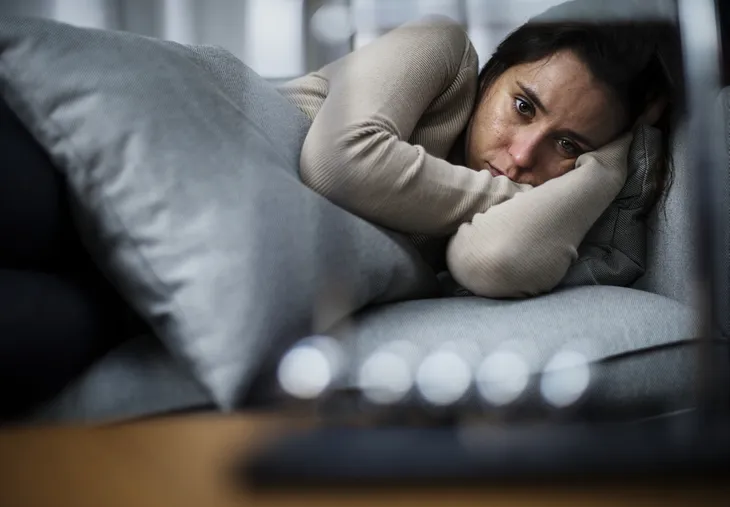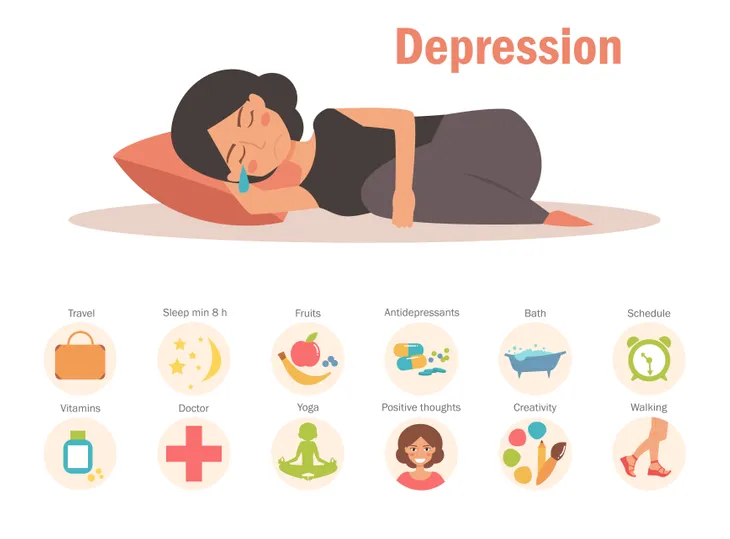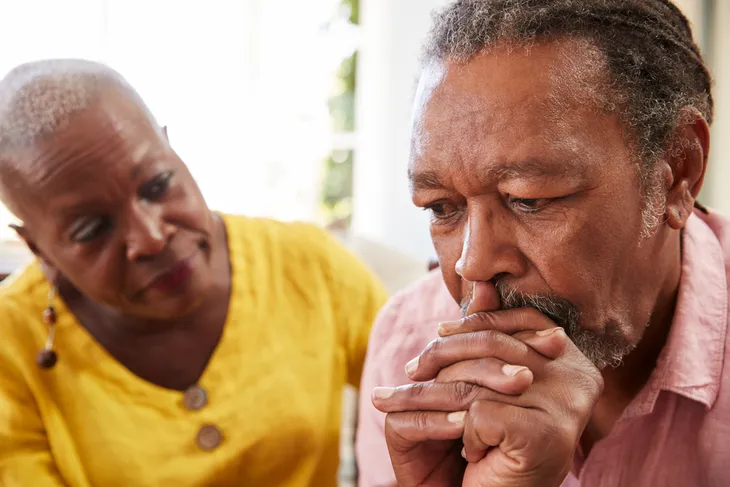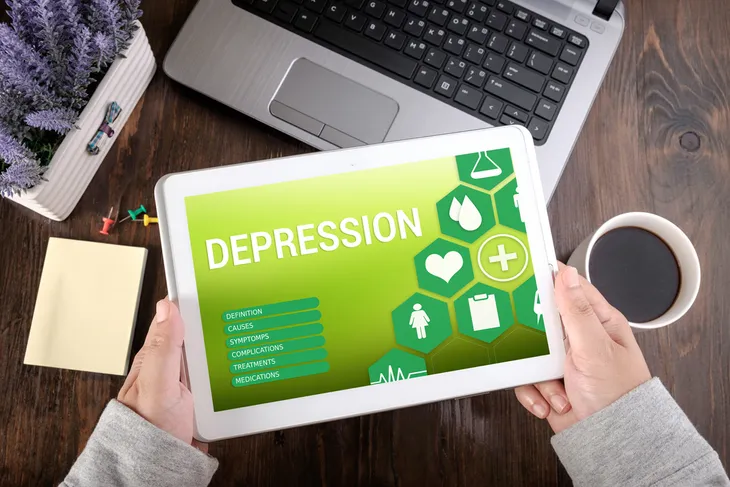Depression is a complex illness that affects more than your mental and emotional health–it can affect every other aspect of your life, physically, socially and professionally. Depression can impact anyone, and while it can be easy to see that someone is depressed, many hide it well. Put simply, though the disease is anything but, it’s exhausting, completely life-altering, and sometimes deadly.
For those with depression, starting each day can be a challenge and it can be difficult to accept support from loved ones and health professionals. This list of 10 things only people with depression can truly understand can better equip you to support others with the disease. And if you have depression, hopefully you’ll see that you aren’t alone.
Normal Tasks Take Longer
We all have routines and responsibilities–work, family, chores and commitments, among other things. And taking care of these responsibilities can be extremely challenging if you have depression. Everything seems to take more energy and require more time to complete. Simple, mundane tasks become difficult and overwhelming, adding more stress and anxiety when they take long to finish.
Many people who are diagnosed with depression say that it becomes hard to concentrate on what you need to do and the inability to complete things makes you feel abnormal. For many people who are depressed, it often gets to the point that you completely stop or avoid some everyday tasks and responsibilities.
Positive Words Often Don’t Help
Continually being told to look at the brighter side of things or hearing the overused phrase “look at the glass as half full” can not only do nothing to help with someone’s depression, but it can also make things feel worse. Many people who are depressed already feel like they aren’t normal and being pushed by words to be positive can be frustrating and upsetting.
Many folks who suffer with the condition say that if depression was as easy to overcome as looking at everything in a positive light, it wouldn’t be such a debilitating disease. That doesn’t mean friends and family should be negative, but avoiding positive catch phrases and instead simply being there for support will help more.
Depression Is All-Consuming
When you suffer from depression, every aspect of your life is impacted. Days, weeks, months and even years can go by with the all-consuming feelings, negatively affecting your overall health, relationships with families and friends, and career. For some, the symptoms of depression can completely consume them – every thought, every choice, and every feeling seems magnified.
Many individuals who suffer with depression say the condition runs the gamut of emotions, and these emotions become more severe as the depression worsens. For example, a depressed individual can experience so many things at once, frustration, sadness, inability to concentrate, anxiety, insomnia, self-loathing, and unfortunately, as the depression sinks further and further into the mind and body, the more intense the turmoil can be.
Depression Can Be Physically Painful
While your mental and emotional state is obviously impacted when you have depression, the physical pain can be extreme. For some, it’s the most life-altering compared to the other symptoms they have to cope with. Back pain, stomach cramps, headaches, joint and limb pain, and general pain and discomfort all over the body are extremely common symptoms of depression.
According to the Mayo Clinic, people with depression might only ever experience the physical symptoms, making it difficult to diagnose. Also, pain and depression often go hand in hand – injuries and disabilities can bring on depression, but depression can also bring on the pain, making it a vicious cycle.
 sebra / Shutterstock
sebra / ShutterstockYou Can’t Simply Get Over It
Every once in a while, people resort to tough love if they aren’t making any headway in helping or supporting you. When those around you don’t have depression and as a result, can never truly understand what you’re going through, they can get frustrated because they want to help. While having a support system helps many people with depression, pushing too hard and telling them to snap out of it or get over it can add frustration and anxiety.
Those with depression often feel like those around them think they can turn on and off their condition like a switch. If it was as easy as all of a sudden letting everything go and moving on, depression wouldn’t be such a complex and difficult illness to treat.
Energy Is Hard To Come By
Because depression affects you physically, mentally and emotionally, it can be extremely draining on your energy level. It’s more than having the Monday blues or exhaustion from a busy day or weekend. Each day is a challenge, and if you’re having more bad days than good days, it’s going to take a toll on your whole body and wear you out.
As a result, a lot of people with depression sleep a lot and feel fatigued all day. It’s true that emotional ups and down can drain your mental and physical energy levels quite traumatically. And your energy level has a direct impact on your mood–the less energy you have, the lower you may feel, and it can be difficult to break the cycle.
Depression Is Not Sadness
The feelings and thoughts caused by depression may sometimes be threaded with sadness, but depression is not the same as being sad. In fact, you can have depression but not feel any sadness at all. In fact, many people with depression often feel nothing at all. Some people feel depressed during difficult times in their lives, like the loss of a loved one, family troubles and losing a job.
But it’s important to recognize the difference between sadness and depression, which is a mental illness. The lack of understanding that depression is more than a feeling minimizes the disease, and creates unrealistic expectations for those trying to overcome it –and the people trying to help.
You Enjoy Things Differently–Or Not At All
Things you used to enjoy–music, the beach, movies, spending time with loved ones, hobbies – can all seem unappealing when you have depression. What used to bring a smile to your face and joy to your life can be off-putting, and you may not have any interest in doing the things you at one time loved.
Depression impacts your whole life, from your work life to your family life, and from your social life to your marriage. This means that often simple things that make you happy can hold zero interest to you when you are in a depressed state. And if you recognize that those things are unappealing, it can add even more anxiety, as you try to understand and cope with your new reality.
Depression Is Different For Everyone
According to the World Health Organization, 350 million people worldwide suffer from depression. Part of the reason depression can be hard to treat is because of the effect it has on people – there isn’t a simple procedure or one medication or treatment that works for everyone like many other illnesses. Sometimes people need medication or therapy, or a combination of both, and other life changes to help you work past the depression.
Because everyone experiences it differently, the best thing a support system can do is to be empathetic, as you work on treating the illness. Depression can take different forms for different people – while some withdraw and become totally avoidant of hobbies and social activities that they once took a lot of pleasure in, others can become angry and irritable and even destructive in their behavior to themselves and those around them.
Talking Is Difficult and Upsetting
A common reaction to depression is to bottle it up and pretend it doesn’t exist. But no one can do this successfully forever, and eventually, communication with a confidant or health professional will occur – and it isn’t easy. Many folks with depression honestly don’t realize there is an issue while others are scared, confused, or embarrassed to reach out and ask help from family or friends.
There’s still a lot of stigma around depression and a lack of understanding about the complexity of the illness. This makes it even more difficult to express your struggles and the impact the illness is having on you. But many people who do open up, whether to a friend or professional, if they feel supported and understood.












